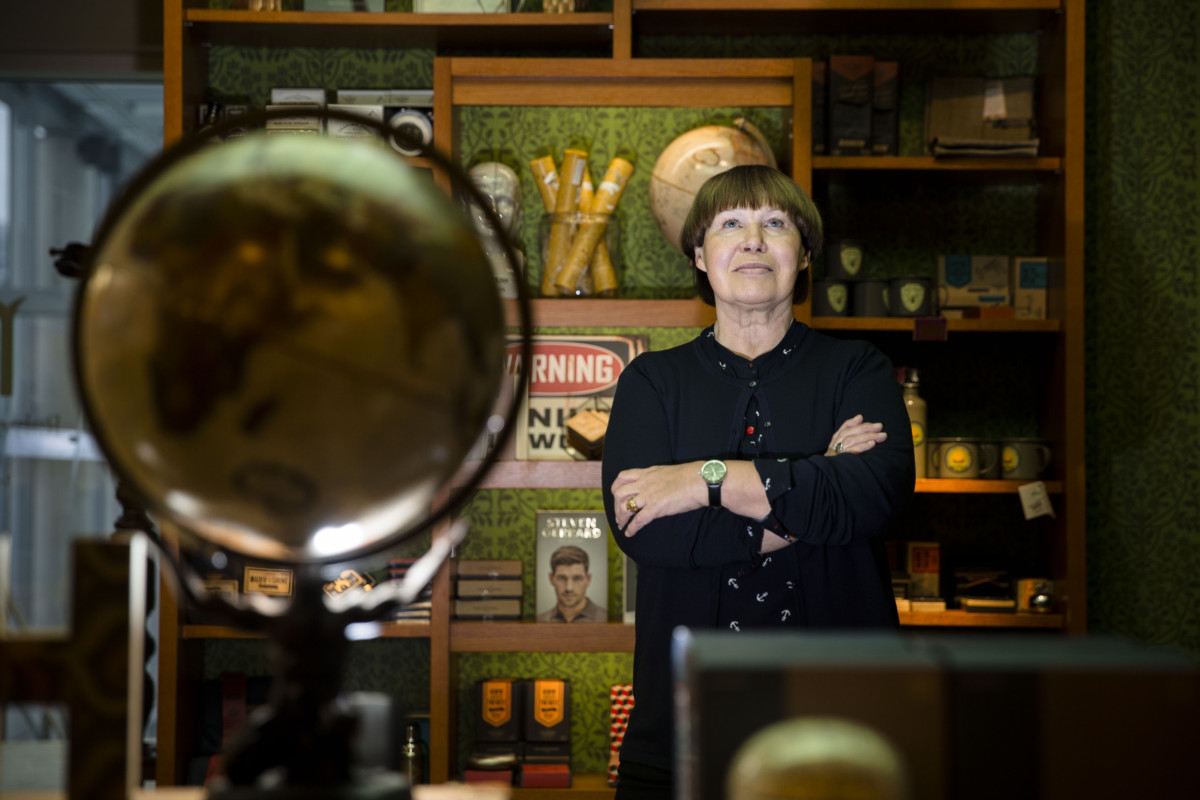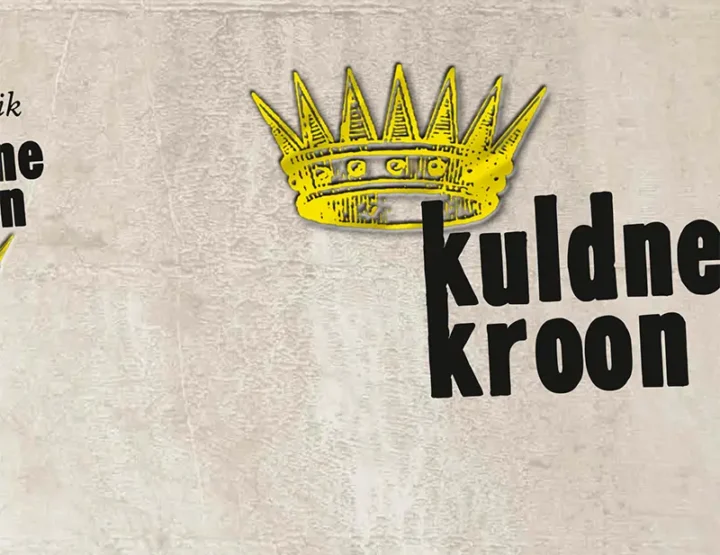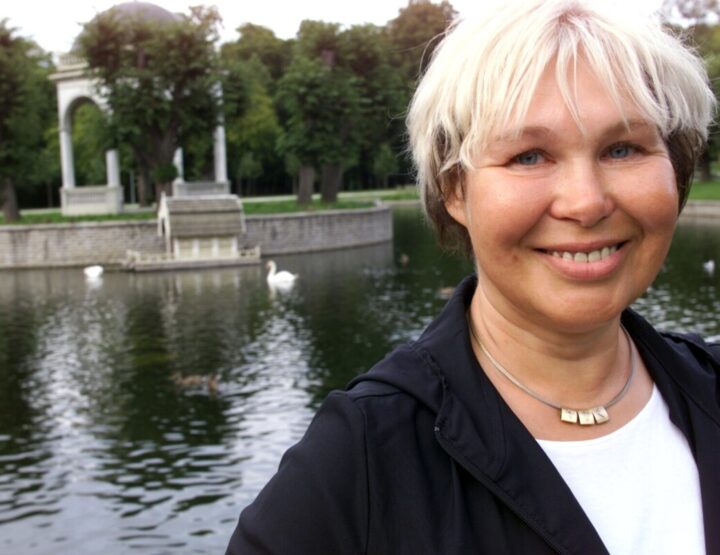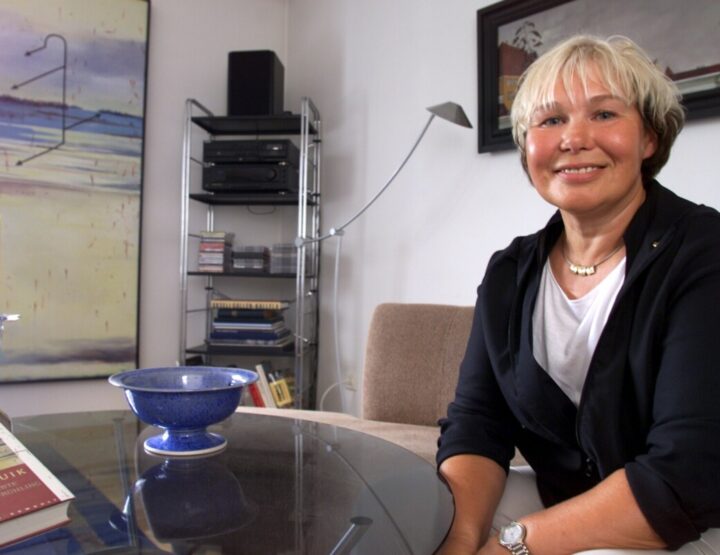Viivi Luik’s collection of essays titled Pildi ilu rikkumise paratamatus (The Inevitability of Ruining the Picture’s Beauty), which also includes several pieces written outside of Estonia, was published in 2017. In August, Cornelius Hasselblatt’s German translation of Luik’s novel Varjuteater (Shadow Theater) was published by Wallstein. Intrigued by the questions of identity, travel, and living abroad that surface in these two works, Luik and I spoke about why it’s necessary to leave one’s home country from time to time and observe it from afar.
You lived away from Estonia for a great many years: almost 18 in total. In what cities have you lived?
Helsinki, Berlin, Rome, Riga, Stockholm, New York, and for a little while in Switzerland, too, but not that long.
Which of those places are still dear to you today? Or, maybe I’ll ask: which of those places would you move to again today?
I might say Rome and Berlin. Not because they’re awfully dear to me or anything, but because they are interesting in their contradictoriness. They convey the world’s diversity and, in a certain sense, my own two contradictory sides as well. I could speak at long length about how Rome and Berlin are very different but form some kind of a whole for me regardless.
Shadow Theater – which is a novel or a travelogue, however one wishes to name it – is one journey to Rome. In it, you claim that you’ve always been on your way to Rome, in a sense. The thought of having been born in Soviet Estonia, growing up in the mid-fifties, and feeling that you’re on your way to Rome is simultaneously unusual and self-evident.
I believe that when you are a child, even if it was in the fifties, you’re entirely indifferent to the whole political system or the fact that borders are closed. It doesn’t matter to a child. A child is free. She can reckon that she’ll go wherever she pleases. It’s not really strange from that perspective.
A child sees a picture of the Colosseum, which you also wrote into Shadow Theater, and that becomes her goal in a way.
Exactly. I’ve said or written somewhere before that children are children everywhere. What matters to a child is that someone loves her. Even in the most trying conditions, even in a concentration camp, it’s important to a child to have that one person who loves and cares for her. Everything else is negligible. To a child, every reality is here and now, just as it was with the Stalinist Estonia I address in the book. To a child, all roads are open and everything is possible at first.
Turning to the Estonian language, you’ve quoted lines from a poem by Paul-Eerik Rummo: “stuck to an axe by your tongue, stuck to a cold axe by your native tongue”.
When you live amidst a small national culture and you know that its language is spoken by very few people, then you’re tied to that language in a very exceptional way. Just like how your tongue will stick to a cold axe in an exceptionally painful way. Everyone knows that if you stick your tongue to cold metal, it will freeze to it and will be very painful. It’s a common schoolboy trick: they’ll always try to find someone younger who hasn’t heard of it yet and tell them to give it a try. That’s where the axe and tongue metaphor originates.
When a child says her first words in Estonian, she is destined for the Estonian linguistic space. She’s stuck to an axe by her tongue and must accept the responsibility it entails. She is born with that responsibility.
I’ve given much thought to how your writing contains an element of paradox in regards to the Estonian language. Estonian is your means of expression, and still, it’s clear that you had to get away from Estonia; had to leave; had to live those 18 years away from here. It’s a personal dimension, on the one hand, but there’s also something more universal about it. It is obvious that your works, your books, do belong to Estonia, but they also belong outside of Estonia; they belong to world literature, because their conversation partners lie outside of Estonia, for the most part. It’s a fascinating paradox. The inevitability of existing and discoursing with literature outside of Estonia and, at the same time, doing so in the Estonian language.
The topic of our interview was the question of why one needs to travel outside of Estonia. I suppose I’ll try to answer why it’s necessary for someone to have that experience, to have been away, and to have seen everything she lives among today; and where she might otherwise live more consciously.
One thing a person discovers when she has lived elsewhere is, it suddenly becomes clear that in every location around the world there might be a person – no matter what color their skin or what gender or what religion – whom your life could depend upon one day. All this time, that person – let’s say a black woman in New York – has existed and lived her own life without you knowing anything about her or she about you. Then one day, some crucial aspects of your life depend precisely upon her. Or else upon a doctor somewhere at the far corner of the world. These dependences upon one another become especially clear during wars. All those people whom we might depend upon one day also exist right now.
Could that also be called being one with the world?
It is discovering your belonging to the world by truly peculiar means, but it’s also a discovery of your own homeland in an entirely new way. The recognition helps you to see differently; to realize your home is much better than how you’ve grown accustomed to it.
In addition to discovering homeland in a new way, this is also the act of discovering yourself in a new way, the understanding that you depend upon others. That makes you less pompous…
It makes you humbler. The perception that all those people and places with whom and with which you’ll later come into contact also exist during your childhood, with the exception of those who haven’t been born yet – that makes the world very deep and very different. It’s the understanding that everything exists at once; that the whole world is happening now and all at the same time.
Is a desire to leave one’s home and homeland for some time also something that can be condemned?
No, I certainly don’t believe that. The fact that people who do a job and want to become very good at something in their field will move around has always held true. Even now, for instance, there still exist handicraft guilds in Germany, even though they’re small. Whoever wants to become a master at some craft must spend at least three years away from their homeland during their journeyman years, i.e. their studies. Only then may they return.
It’s an inevitable period of maturing and getting experience, which doesn’t mean it must or should only happen in youth. It can be done later, too. It, likewise, doesn’t mean someone loses their ties to their homeland. On the contrary. The person develops a new relationship that might be a little more critical, but might also be clearer. It’s a little like saying when you’re away from home, you’re better able to appreciate your homes.
I suppose all those who have traveled and been away have experienced that. As soon as you’ve gone on a trip, your thoughts start progressing differently and you have the opportunity to look at things in a new light. I wonder if it isn’t the same in human relationships, too. When you’re too close to a person, you don’t see them or what’s going on between you as clearly. You no longer see the big picture. When you take a step back, then you can observe. Perhaps it’s a little similar to one’s homeland.
It is. But, of course, it’s quite a different thing when people leave in the hopes of making more money elsewhere. Or when they do so out of contempt or resentment. Then, those who leave see rather quickly that life elsewhere is much harder than at home. Some dare to return then, others don’t. Some stay elsewhere to suffer, because it takes courage and strength when you wish to make your own in a foreign land. It takes a lot of work. It’s not like you can go abroad and everything will simply fall into your lap. It takes more effort than at home. Going elsewhere with lower goals is no form of growth. Then, we’re talking about something else – about a certain kind of growth and expansion.
Aija Sakova (1980) is an Estonian literary scholar and critic. Since 2017, she has been a senior researcher at the Estonian Literary Museum’s Estonian Cultural History Archives.




